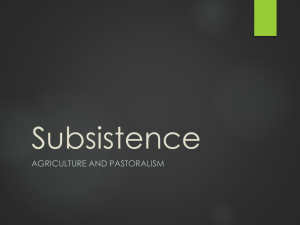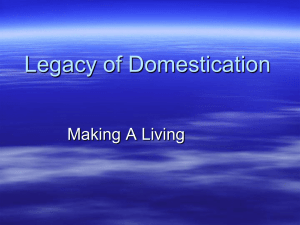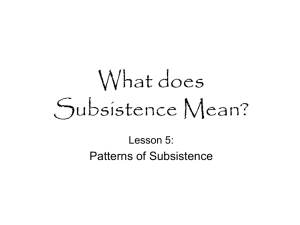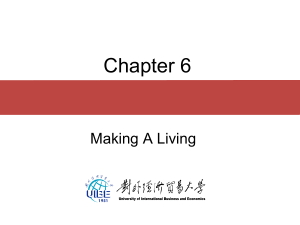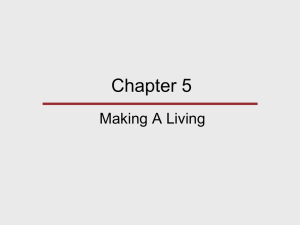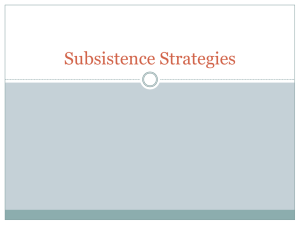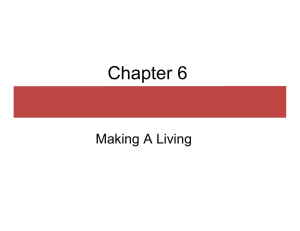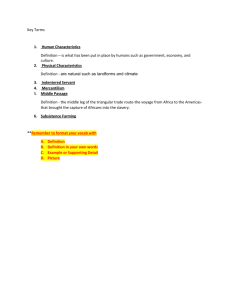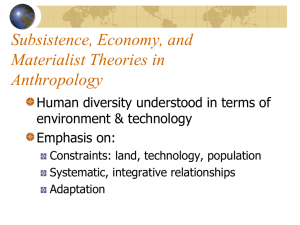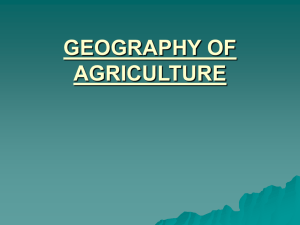Unit 3 - History of World
advertisement
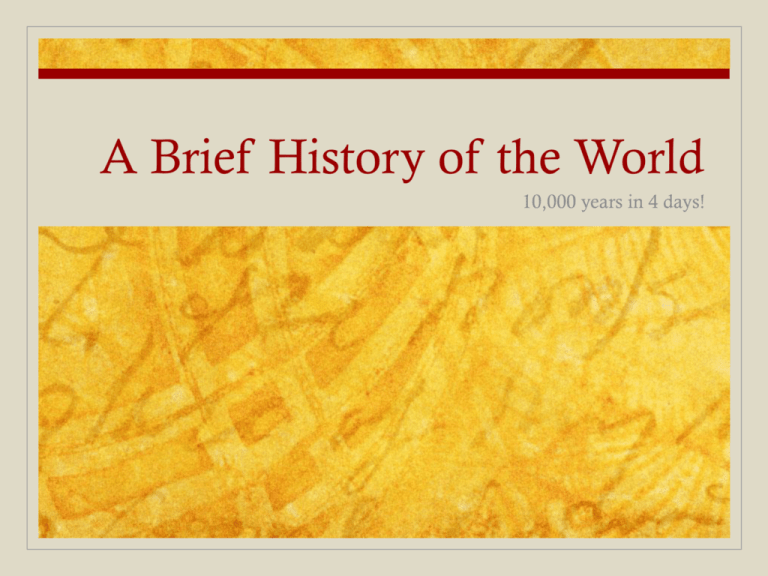
A Brief History of the World 10,000 years in 4 days! The World in 2010 Spaceship Earth How unique is America? How “lucky” are we? http://www.youtube.com/watch?v=WmMU uR--Qvo http://www.youtube.com/watch?v=oumVHS j6AE8 How did we arrive here? Survival 3 Factors 1.Subsistence practices 2.Exchange systems 3.Material equipment used to make a living (technology) Survival 5 Main Subsistence Patterns 1. Foraging (Hunter-gathers) 2. Pastoralism (raising domesticated animals) 3. Horticulture 4. Agriculture (more intensive than horticulture) 5. Industrialism The First 6 Million Years… All humans were foragers until 10,000 years ago 90% of all people who ever lived 99% of human history Small groups (<100 people) http://www.youtube.com/watch?v=Pro6X _Kc5wA&feature=fvw Egalitarian “The Original Affluent Society” – Marshall Sahlins What is affluence? The Origins of Inequality Jared Diamond Thesis (NOT fact): The roots of inequality in today’s world boil down to geographic luck. 8,000 years ago – Agriculture emerges almost simultaneously in 5 places Key to Diamond’s Thesis: Spread easily east to west, not north to south b/c of different climates Profound cultural changes came with the domestication of plants and animals 10,000 years ago More permanent and larger settlements (close to water) Increased Population Division of Labor More elaborate governments (chiefdoms, states) By 1450, patterns of subsistence were distributed like this… Most agriculture develops along the Tropic of Cancer (yellow) By 1450, patterns of subsistence were distributed like this… Draft animals and other technologies spread east-west through the wide continent (yellow box) By 1450, patterns of subsistence were distributed like this… Horticulture thrives in fertile tropical areas (green) By 1450, patterns of subsistence were distributed like this… Pastoralism develops on the edge of food cultivation areas…or where food cultivation thrived but now fails (orange) By 1450, patterns of subsistence were distributed like this… Foraging has been pushed into sparse environments (red) Industrial Revolution About 240 years ago “Picks up steam” (pun intended) about 150 years ago Trends from Foraging to Industrialism Increasing population Less efficiency Greater production, surplus, and wealth Increased social and economic inequality But… Greater diversity of products Increased social conflict Greater diversity of jobs Increased labor demand

